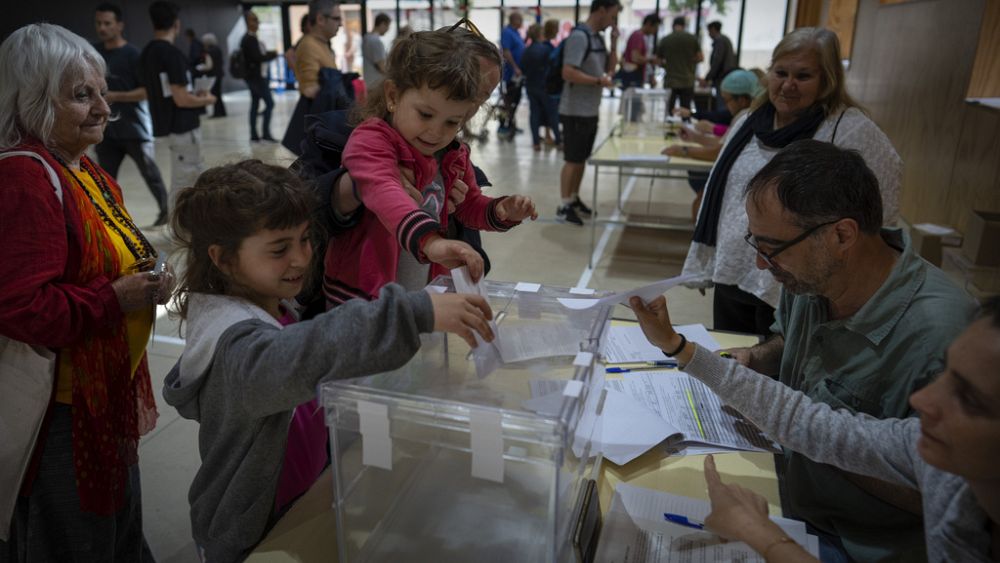Voter fraud claims rife on social media ahead of Spain election

Days before Spain holds its general election on Sunday, misleading claims have been spreading on social media. The Cube took a closer look at what’s true and what’s false.
Spain’s Prime Minister Pedro Sánchez called an early election after his left-leaning coalition lost in the regional and local polls this May.
More than 37 million Spaniards are eligible to vote, including 2.3 million abroad, and at least 2.5 million have registered to cast ballots by post.
With many people currently enjoying their summer holidays, social media users have been falsely claiming that it’s impossible to vote if you’re away.
The allegations, amplified by supporters of the center-right Popular Party and the far-right Vox Party, bear similarities to the baseless claims spread by then-President Donald Trump ahead of his 2020 US election defeat.
As in the United States, the use of mail ballots is a particular focus of election conspiracy theories.
One Facebook user said, “The only option is to be present on July 23 to vote in person or to abstain.”
However, the government website, as well as the Spanish Post Office, explain on their web pages that “The Electoral Census Office will send the documentation for voting by mail to the address where the interested party will be from July 3rd.”
Once the ballots are received, the applicant has until 19 July to send the ballot back by mail.
Have some parties been excluded from some mail ballots?
In a viral TikTok video, a man claims that he wants to vote by mail for the far-right party Vox in Santa Cruz de Tenerife, however, the political party does not appear on the ballot.
This enraged many social media users calling the election a scam – or pucherazo, a Spanish term for electoral fraud.
There’s a simple explanation for this. After numerous resignations, Vox did not present a full list of candidates, which made them unable to run for Congress this year – hence there being no option to vote for them in Sanat Cruz de Tenerife.
How to avoid falling for disinformation during the election?
“The main tips would be to verify information, whenever you can,” explained Marc Esteve Del Valle, a professor at the University of Groningen specialised in social media and disinformation.
“Don’t assume that because this information is coming from someone who is very close to you that this is going to be trustful information. Above all, make use of common sense. It seems that in this rushing world, we are losing the time to step back and think about what we are sharing throughout our social network with our peers because, in the end, this is going to potentially influence the outcome of the elections,” he told Euronews.

